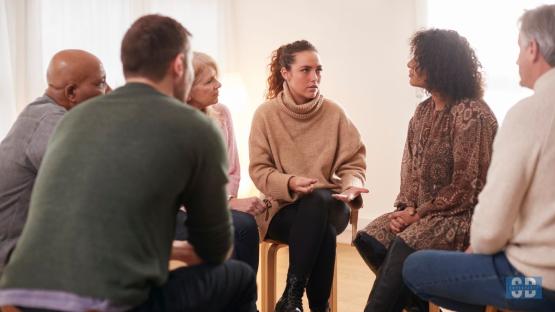Grief is a profoundly personal experience, yet it is something almost everyone faces at some point in their lives. Whether due to the loss of a loved one, the end of a significant relationship, or another life-altering event, grief can feel overwhelming and isolating.
Navigating this complex emotional landscape is difficult, but grief counseling offers an essential pathway to healing. If you’re looking for support, searching for grief counseling near me can connect you to professionals trained to help you through this journey.
Understanding Grief and Its Impact
Grief is much more than sadness. It can include a wide range of emotions such as anger, guilt, confusion, and loneliness. Physical symptoms like fatigue, changes in appetite, and difficulty concentrating are also common. Grief is not a linear processâeveryone experiences it differently and moves through it at their own pace.
The impact of grief extends beyond emotional pain. It can affect your relationships, your work, and your overall health. Because of this, addressing grief is crucial, not just for emotional recovery but for maintaining a balanced life.
What Is Grief Counseling?
Grief counseling is a specialized form of therapy designed to help people cope with the loss and adjust to life without what they’ve lost. Unlike general therapy, grief counseling focuses specifically on the emotional, psychological, and sometimes spiritual effects of grief.
A grief counselor provides a safe, nonjudgmental space where you can express your feelings openly. They offer guidance and coping strategies tailored to your unique experience. This support can help prevent complicated griefâa prolonged and intense form of grief that disrupts daily functioning.
How Counseling Supports Healing
Validating Your Feelings
One of the first ways grief counseling helps is by validating your feelings. It’s common for people to feel confused or ashamed about the intensity or duration of their grief. A counselor reassures you that these emotions are normal and part of the healing process.
Offering Coping Strategies
Grief counseling introduces coping strategies that can help you manage emotional pain. These may include relaxation techniques, journaling, or mindfulness exercises. Over time, you learn to acknowledge your grief without being overwhelmed by it.
Providing Tools for Adjustment
Losing someone or something significant often requires rebuilding your life. Counseling helps you find new ways to create meaning and purpose after loss. This might mean redefining your identity or developing new routines.
Enhancing Communication Skills
Grief can strain relationships, especially when others don’t understand your experience. Counseling can improve your communication skills, helping you express your needs and feelings to friends and family. This support strengthens your social connections, which are vital for healing.
Preventing Isolation
Grief often causes people to withdraw from others, increasing feelings of loneliness. Regular sessions with a grief counselor provide consistent support and reduce isolation. Some counselors also recommend group therapy where you can connect with others facing similar losses.
When to Seek Grief Counseling
It’s normal to wonder if you need counseling or if time alone will heal your grief. While everyone’s timeline is different, certain signs suggest that professional support could be beneficial:
- Intense grief lasting longer than six months without improvement
- Difficulty performing daily tasks or maintaining relationships
- Persistent feelings of hopelessness or despair
- Physical symptoms such as severe insomnia or loss of appetite
- Thoughts of self-harm or suicide
If any of these resonate with you, reaching out for help is a crucial step. Using resources like grief counseling near me can help you find qualified professionals nearby.
Choosing the Right Grief Counselor
Finding a counselor you trust and feel comfortable with is essential. Consider these factors when selecting a grief counselor:
- Experience and Training: Look for someone specialized in grief therapy or bereavement counseling.
- Approach: Some counselors use cognitive-behavioral therapy, others focus on narrative therapy or mindfulness. Find what feels right for you.
- Accessibility: Ensure the counselor’s location, schedule, and fees align with your needs.
- Recommendations: Ask for referrals from friends, family, or healthcare providers.
Many counseling services offer an initial consultation, which can help you determine if the counselor is a good fit before committing.
Embracing Healing Through Counseling
Healing through grief is a gradual process, and counseling can be a vital part of that journey. It offers support, understanding, and practical tools to help you face your loss and move forward with your life.
Grief counseling is not about forgetting or “getting over”; your loss. Instead, it’s about learning to live with the loss in a way that honors your feelings and allows you to find peace and hope again.
If you or someone you know is struggling with grief, don’t hesitate to explore professional support. A simple search for grief counseling near me can open the door to healing and renewal.







